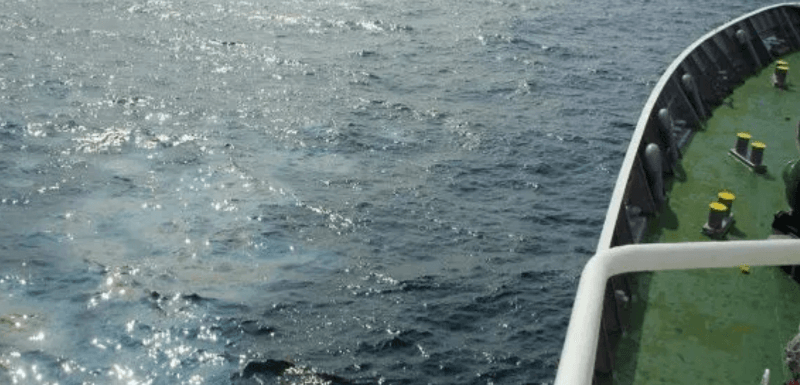By Zhong Sheng, People’s Daily
The legitimacy, legality and safety of Japan’s plan to dump nuclear-contaminated water into the sea have been constantly questioned globally. Protests in Japan and its neighboring countries are emerging one after another, and opposing voices from the rest of the international community have never ceased.
The Japanese side should have seriously responded to international concerns and made every effort to deal with the nuclear-contaminated water in a science-based, safe and transparent manner.
However, it is only whitewashing the issue and attempting to create the false impression that discharging nuclear-contaminated water into the sea is safe and harmless through aggressively launching public relations campaigns domestically and abroad.
This only exposes its disregard for the global marine environment and public health, and the country’s selfishness.
Japan’s push for the discharge plan has been accompanied by meticulous public relations maneuvers from the very beginning.
Japan’s Reconstruction Agency, established in 2012 to advance reconstruction in disaster-hit areas, allocates special public relations budgets every year to convince people that the impacts from the Fukushima nuclear accident have been eliminated.
On April 13, 2021, the same day when the Japanese government unilaterally decided to discharge nuclear-contaminated water into the sea, the Reconstruction Agency published propaganda posters and videos on its website, attempting to gain favor by packaging radioactive elements that cannot be removed from the nuclear contaminated water as mascots.
This move drew severe dissatisfaction domestically and internationally. Fukushima residents angrily pointed out that this propaganda was completely disconnected from the stark reality facing Fukushima. As a result, the Reconstruction Agency eventually had to withdraw the related merchandise.
Over the past two years, instead of learning lessons, Japan has continued its propaganda campaigns to convince the public of the so-called safety of the nuclear-contaminated water. Many Japanese newspapers, TV stations and other media outlets have advertised for the so-called safety of the contaminated water, drowning out public concerns and opposition.
The Japanese government frequently refers to the water treated by the Advanced Liquid Processing System (ALPS) but still containing high levels of radioactive nuclides as “processed water,” in an attempt to downplay its hazardous nature and potential risks.
The Japanese government has also set up an 80-billion-yen ($556.22 million) fund to “compensate” fishing businesses in areas affected by the discharge, trying to pacify opposition with so-called “compensation fees.” This is further evidence of Japan’s attempts to cover up the dangers of dumping the contaminated water into the ocean.
Japan has also stepped up public relations efforts targeting specific countries, international organizations and groups, attempting to gain endorsement for its discharge plan.
At a G7 climate, energy and environment ministerial meeting held this April, Japanese Minister of Economy, Trade, and Industry Koichi Hagiuda claimed that steady progress on decommissioning Fukushima, including discharging the contaminated water, would be welcomed.
Steffi Lemke, Germany’s Minister for the environment, nature conservation, nuclear safety and consumer protection immediately rebutted that Germany could not welcome the release of the treated water.
Japan has also attempted to find excuses to justify the discharge plan on occasions like the NATO Summit, the ASEAN-plus ministerials, the Eastern Caribbean Ministerial Meeting on Fisheries and Sustainable Use of Living Marine Resources and so on.
Whether domestically or internationally, Japan’s efforts have been used in the wrong place. Concerned parties strongly oppose Japan’s plan to discharge the contaminated water into the ocean, and demand that Japan halt the plan, engage in sincere communication with all stakeholders including neighboring countries, responsibly dispose of the water, and accept strict international supervision.
But so far, Japan has only stubbornly pushed forward with the ocean discharge plan without thoroughly examining other options or seriously addressing international concerns, which disappoints the global community with its selfishness.
Japan’s public relations maneuvers cannot eliminate domestic and international concerns about dumping the nuclear-contaminated water into the ocean.
Japanese fishermen have repeatedly voiced their opposition recently. South Korean opposition parties have also sent letters expressing concerns and objections of the South Korean public. Protests have been staged in front of Japanese embassies and consulates in the Philippines, New York, Sydney and elsewhere, demanding Japan to halt the discharge plan.
People did so because they know the plan, once implemented, would impose unpredictable nuclear contamination risks on the international community.
Dumping nuclear-contaminated water into the oceans is a reckless gamble that endangers humanity. Japan should face international concerns, fulfill its moral responsibilities and obligations under international law, and find an appropriate solution for the contaminated water.
The country must not unilaterally initiate the ocean discharge before addressing the international community’s concerns over the legitimacy of the discharge plan, the reliability of data, the efficacy of the treatment system and the uncertainty of environmental impact.
(Zhong Sheng is a pen name often used by People’s Daily to express its views on foreign policy and international affairs.)

Leave a Reply